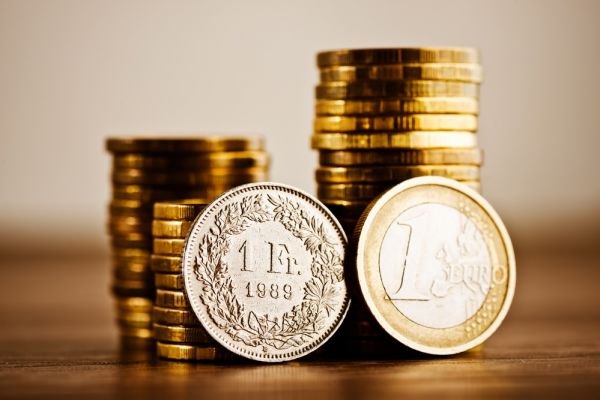
What is the sovereign money initiative that Swiss will vote on in June?
May 07, 2018What is it all about?
The general idea is based on theory invented by Irving Fisher, an American economist. It is not a new one – it dates to the 30s of the last century. Sovereign money is money issued by central bank as a legal tender. It would have meant that only the Swiss National Bank would be able to sell Swiss Francs – or rather issue them. At this point, money in circulation comes from private banks that grant loans, mortgages or other credits to their clients. Therefore, they somehow sell Swiss Francs to customers, creating a debt on the creditor side. The sovereign money initiative wants to give the central bank the only right to create money. In such system, commercial banks are only borrowers – they transfer and distribute money they get from the national bank to their customers. No country in the world has such system currently. According to the creators of this people’s initiate, that makes it highly innovative.
Fencing off crisis
initiative is aimed at reducing risk of re-appearance of a financial crisis like the one that broke out in the United States in 2007 concerning the mortgage bubble. Commercial banks give far more money than they own – credits exceed their reserves. If – hypothetically – all Swiss and those from abroad, who held CHF in one of the commercial banks, at some point decide to withdraw them, such bank would simply go bankrupt. In sovereign money initiative, created money is no debt – it has 100% coverage in reserves of the SNB. The new system based on sovereign money would also have some serious implications on the exchange rate of CHF and other currencies. At this moment, value of the money depends on how much people believe money is worth – you have CHF100 and you trust you can buy euros of certain amount for this or goods at shop. But if the trust in financial system falls, so does the value of the money. Sovereign money system would cross out such possibility.
Bringing back Switzerland’s reputation
The creators and supporters of the sovereign money initiative believe it can bring the glory of the stable financial marketplace to the country. At this moment, only 10% of CHF in circulation is issued by the SNB. Majority of money out there on the market is borrowed. What is more, it has no coverage in commercial banks reserves – as it doesn’t need to. Bank can grant a loan without having the amount at hand. On the one hand, such solution is good for economy – investments are being made both on institutional, entrepreneurial and private level with borrowed CHF. But it can be also risky – if money is borrowed with no backup, one can easy imagine what will happen when the bubble burst out, banks become insolvent, financial crisis strikes again. People responsible for the initiative, truly believe it can make the Swiss Franc the safest currency in the world. The Swiss Franc exchange rate would be stable and protected against financial crisis. The system would be transparent. Also, the economy would become more competitive.
Not likely to happen
The initiative is not likely to be implemented. The government and the SNB are both against it, so are all the parties. Main reason is the fact that no other country has done it before. Introducing the sovereign money system can be highly risky and expose Switzerland to huge costs and uncertainty in first months or even years of its functioning. According to latest polls, only 35% of public is to vote in favor of the initiative on June 10th. Almost half of respondents, 49%, is against, whereas 16% remain undecided. These are results from just the first opinion poll. There is still a couple of weeks till vote, however a major shift in public sentiments is not very possible.
Meanwhile, the Swiss franc exchange rate remains stable at a high level and has leveled off slightly above the range of 1,195 Swiss francs per euro over the past few days. What would be the exact impact on the euro-franc exchange rate is predictable.

